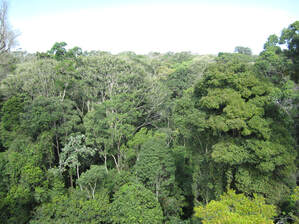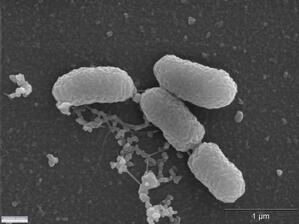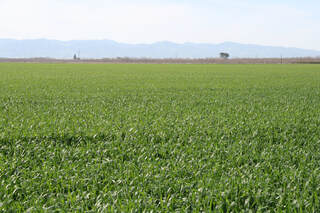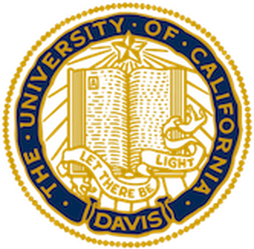Humans usually recognize the impact of microbes on their lives through an infectious disease or spoiled food, but microorganisms have far more important beneficial effects. Microbes are responsible for producing foods (wine, cheese, and bread) and biofuels (ethanol, CH4, H2), degrading toxic compounds, recycling organic material, and driving biogeochemical cycles in nature. Our capacity to appreciate them is based on the limited number of microbial species in isolation. Owing to molecular biology techniques, we know that many more microbial species are waiting to be discovered. The research program in our laboratory is guided by the following specific questions:
1) How is the genetic diversity of a species reflected in its habitat abundance pattern?
2) What biological, chemical, and physical forces shape spatial and temporal patterns of species distribution?
3) What are the genomic features (genes, regulatory sequences, gene copy number, etc.) responsible for the ecological outcome of a species?
To answer these questions, our laboratory has been using a combination of genomic, proteomic, and physiological experimental data to study microbial phylogenetic and functional diversification. Results from this work have broad implications to basic research in evolutionary biology and ecology, and applied aspects, such as conservation policies for natural and agricultural ecosystems.
1) How is the genetic diversity of a species reflected in its habitat abundance pattern?
2) What biological, chemical, and physical forces shape spatial and temporal patterns of species distribution?
3) What are the genomic features (genes, regulatory sequences, gene copy number, etc.) responsible for the ecological outcome of a species?
To answer these questions, our laboratory has been using a combination of genomic, proteomic, and physiological experimental data to study microbial phylogenetic and functional diversification. Results from this work have broad implications to basic research in evolutionary biology and ecology, and applied aspects, such as conservation policies for natural and agricultural ecosystems.
Laboratory News
July 2024 - A wonderful publication from Julia! Congratulations for your hard work and perseverance. Check the pub at the journal Environmental Microbiome.
June 2024 - Great new publications from our lab and collaborators: Nature Microbiology, Science of the Total Environment, Applied Soil Ecology.
January 2024 - We welcome Dr. Cong Wang to our lab! A new publication about the soils in the Amazon in the prestigious journal Global Change Biology.
November 2023 - We are happy to welcome Cameron to our research group! He is a postdoctoral researcher working on carbon use efficiency in agricultural soils.
September 2023 - Our welcome to Hongyi , Xinhao and Tang! Looking forward to really exciting research discoveries.
July 2023 - We welcome Julia to our lab! She is a postdoctoral researcher working on methane emissions in the Amazon wetlands.
June 2023 - Laibin had an excellent paper published in the highly prestigious journal Environmental Science & Technology. He will be joining the faculty of Saint Louis University this coming Fall. Great accomplishments. Congratulations!
December 2020 - LEAPS - Leadership Excellence Across Practice and Sciences. If you are applying for Graduate School, you should check this out! Funds are available for selected students: https://soilecogenomicslabs.weebly.com/leaps.html
June 2024 - Great new publications from our lab and collaborators: Nature Microbiology, Science of the Total Environment, Applied Soil Ecology.
January 2024 - We welcome Dr. Cong Wang to our lab! A new publication about the soils in the Amazon in the prestigious journal Global Change Biology.
November 2023 - We are happy to welcome Cameron to our research group! He is a postdoctoral researcher working on carbon use efficiency in agricultural soils.
September 2023 - Our welcome to Hongyi , Xinhao and Tang! Looking forward to really exciting research discoveries.
July 2023 - We welcome Julia to our lab! She is a postdoctoral researcher working on methane emissions in the Amazon wetlands.
June 2023 - Laibin had an excellent paper published in the highly prestigious journal Environmental Science & Technology. He will be joining the faculty of Saint Louis University this coming Fall. Great accomplishments. Congratulations!
December 2020 - LEAPS - Leadership Excellence Across Practice and Sciences. If you are applying for Graduate School, you should check this out! Funds are available for selected students: https://soilecogenomicslabs.weebly.com/leaps.html
Research
Research interests in our lab vary from genes and molecules to microbial communities to ecosystems. These ecosystems also vary in size from small (soil aggregates) to large (tropical forests).
Our Outreach
We value Science and Education and we are fully committed to translating our scientific findings to the general public. Over the years, our laboratory has taken steps to discuss and provide information about soil microbial communities and their multiple functions to the public.
|
|







